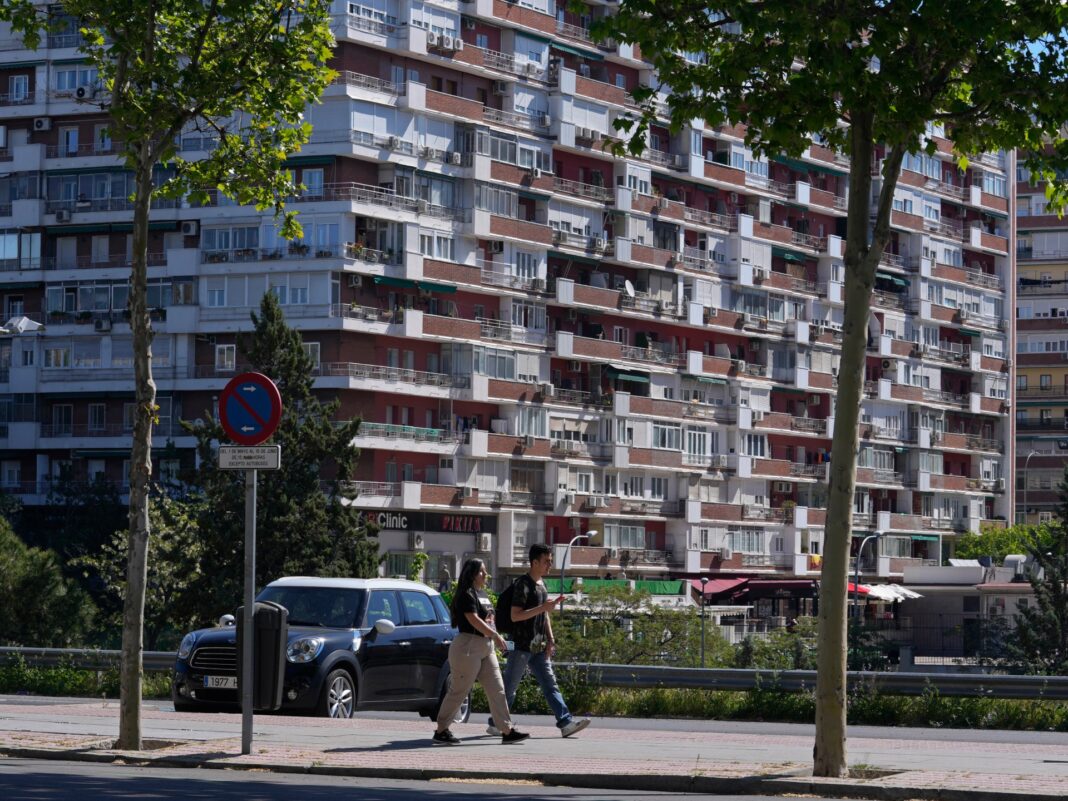Last week Spain’s Socialist Prime Minister Pedro Sanchez announced several measures, including a 100 percent tax on the value of homes bought by foreigners, to tackle the country’s housing crisis.
Sanchez aims to deter non-European Union residents from buying houses in the country. “Spain’s housing should be for Spanish people to live in, as well as for migrants who come here to work and build a life and contribute to the development and prosperity of our country,” Sanchez said, referring to people who use housing as an investment vehicle.
Housing shortages and rising prices have provoked people to protest against tourists in several cities such as Barcelona and Seville, as foreign buyers and mass tourism are seen as contributing factors to the crisis.
So how serious is the housing crisis and will the new measures tackle the issue that successive governments have failed to address?
What is Spain’s new property tax proposal?
Sanchez has proposed 12 steps to tackle the country’s strained housing market, which saw some of Europe’s highest price increases last year at 8.3 percent.
The 100 percent tax will affect overseas buyers, who bought 27,000 apartments in 2023. In the third quarter of 2024, about 15 percent of all real estate properties were purchased by foreigners, according to the Association of Registrars.
“They [overseas buyers] did so not to live, but to speculate, to make money with them, something that in the context of scarcity we cannot afford,” Sanchez said at the forum, “Housing, the Fifth Pillar of the Welfare State”, in Madrid on Monday.
The Spanish leader also proposed higher taxes on holiday rentals to make sure apartments being rented out to tourists were taxed “like a business”. “It is not fair that those who own three, four, five apartments for short-term rental pay less tax than hotels,” Sanchez said.
Other proposals include tax breaks and incentives for landlords to provide affordable housing, particularly to younger people and to cap rents in high-demand areas.
What other measures has he announced?
Sanchez, who heads the left-wing coalition government led by his Spanish Socialist Workers’ Party, also plans to amend laws to speed up the construction of new houses and expand the availability of land for private construction.
About 600,000 new homes are needed by the end of 2025 but some 90,000 homes are being built each year, according to the Bank of Spain.
Sanchez stressed that housing was his government’s top priority but cautioned that there was no “magic wand” to solve the issue. The Spanish prime minister announced the transfer of two million square metres of land to a new, public company to construct “thousands and thousands” of affordable social housing units.
Buildings under social housing are subsidised by the government and owned or managed by local or central government, or nonprofit organisations.
Sanchez stated that social housing constitutes just 2.5 percent of Spain’s market, far below the space in other major EU countries, such as 14 percent in France and 34 percent in the Netherlands.
Without outlining a detailed plan, Sanchez also said the government plans to combat fraud in holiday rentals, such as those on platforms like Airbnb.
Fraud in Spain’s holiday rental market includes fake property listings and the unauthorised subletting of properties to tourists without the owners’ consent, and unlicensed rentals that fail to meet legal or safety standards.
In December 2024, Spanish authorities launched an investigation into Airbnb for failing to delete thousands of misleading rental offers on its platform.
Meanwhile, the golden visa, introduced in 2013, would be eliminated. This programme allowed wealthy non-EU investors to gain residency by purchasing real estate projects worth at least 500,000 euros (about $513,000).
What properties and people will it affect the most?
The tax will apply to individuals who are neither citizens nor residents of the European Union, and often use the properties as holiday or investment homes.
United Kingdom buyers top the list of foreign property purchasers in Spain, making up about 10 percent of all acquisitions by non-residents in the last quarter of 2023.
Shortage of housing and high rentals mean that people have been priced out of the market, with the rate of homelessness rising by 24 percent since 2012 to 28,000 people, according to official figures.
Spain’s new measures aim to help residents, especially those in cities and coastal areas such as the Balearic Islands, and the Canary Islands, where rents have surged due to high demand and limited supply.
When will it go into effect?
The exact timeline for implementing the tax on foreign buyers and other proposed measures has not been specified.
The proposals require approval in Spain’s fragmented parliament, where Sanchez’s minority coalition may face a challenge in passing legislation.
How affordable is housing in Spain?
Housing in Spain has become particularly expensive in urban centres or tourist hotspots like Madrid, Barcelona, and cities on the Mediterranean coast.
Rents in the country increased by 11 percent in 2024, according to real estate portal Idealista.
A one-bedroom flat in Barcelona’s city centre costs an average of $1,313 per month, and $989 per month outside the city centre. Average rent in Barcelona has risen by 53 percent over the past decade.
However, Spanish cities are still cheaper than several Western European cities, where high rentals and housing prices have added to the cost of living crisis.
In London, which has also been facing a housing crisis, the average rent for a one-bedroom apartment was $2,738 a month in December 2024.
A report from London’s City Hall showed that the city’s high rental costs were driven by its status as a global economic hub, attracting a large workforce and student population, which increases demand for housing. This demand is coupled with a significant decline in rental property supply since 2020, pushing rents to record levels.
Sanchez pointed out that housing prices across Europe rose by 48 percent in the last 10 years, nearly double the increase in household income over the same period.
“The West faces a decisive challenge: not to become a society divided into two classes, that of rich owners and poor tenants,” he said.
“We are facing a serious problem, with enormous social and economic implications, which requires a decisive response from society as a whole, with public institutions at the forefront,” he said, according to comments published by the government.
Is tourism the only factor impacting the housing crisis?
Spain is the world’s second most visited country with more than 94 million tourists in 2024. Tourism generated some $200bn in revenue, or 13 percent of the country’s gross domestic product (GDP).
Residents in Spain have complained about mass tourism, including gentrification, increased living costs and a spike in rowdy behaviour by party-seeking foreigners.
However, tourism is not the only factor contributing to the housing crisis in Spain.
Spain’s housing bust of 2008 and the subsequent financial crisis also worsened the problem. Between 2008 and 2014 Spain experienced a major financial crisis, which also included a prolonged real estate crash.
“By 2015, house prices had fallen by a third from the 2008 peak, and there were essentially no new houses being built”, according to a working paper from the European Central Bank.
The COVID-19 pandemic also added to the crisis as construction costs have risen substantially since then.
High youth unemployment of 26 percent means that young people live with their parents for longer periods, slowing down new residential projects. Nearly two-thirds of Spanish young people aged between 18 and 34 live with their parents.
Other factors include complex regulations that have slowed land development and a lack of bank financing and public budgets for real estate projects.


